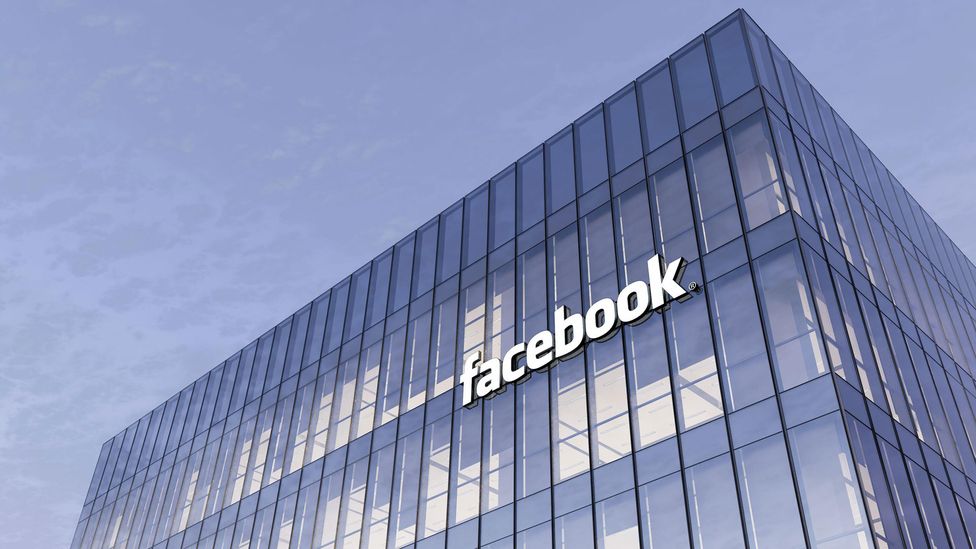What Services to Start to Get Office to Work Again
The bosses who want us back in the office

We assume remote work is here to stay – but some of the loudest voices in the corporate world are rallying to get employees back in offices.
A
Every bit populations get vaccinated, and many countries prepare for something of a return to normality, companies that accept been forced into remote-work arrangements for the past year at present face up a complicated conclusion. Should bosses let workers stay at home, bring anybody back to the role or find a solution in betwixt?
Businesses are answering in dissimilar ways. Some take been quick to herald a completely new world of work, like file-hosting service Dropbox, which went "virtual starting time", in 2020, pointing to the benefits of "non-linear workdays" and "employee experience". But others, similar tech behemothic Facebook and insurance company Aviva, are opting for a "hybrid" model, offering greater flexibility and independence for workers while maintaining sure structures.
Yet some employers, particularly inside the finance industry, suggest the long-term role of remote work has been overstated, and that the office will continue to serve as an important hub. "It'southward non a new normal," Goldman Sachs CEO David Solomon said at a Credit Suisse Group AG conference in February. "Information technology'due south an abnormality that we are going to correct equally speedily equally possible." Jes Staley, chief executive of Barclays, voiced like sentiments in January, describing remote working equally a short-term measure out that was not sustainable.
The structure of the post-pandemic work world therefore remains up in the air, despite some workers' assumptions that office life has inverse forever. It may be hard to know exactly what set-upwardly an individual employer may choose when the time comes, but understanding why opinions are so diverse – and why some sectors are keen to accept employees back in house – may aid workers prepare for a future that may look different than they predictable.

Goldman Sachs CEO David Solomon is amid the executives leading the charge to get workers back into their seats, as rapidly equally possible (Credit: Alamy)
'Not platonic for u.s.a.'
The pushback from the finance sector has noticeably emerged in the final few months.
Solomon said the investment bank, which is currently in the spotlight for its working civilisation, had operated throughout 2020 with "less than 10% of our people" in the function. But although albeit the pandemic had helped push digitalisation, creating more efficient ways of business concern, the Goldman Sachs CEO raised fears over the impact on collaboration and the company's iii,000 new starters. "I practice think for a business like ours, which is an innovative, collaborative apprenticeship civilization, this is not ideal for us," he explained.
Barclays'south Staley said it was "remarkable" that remote working had worked as well as it had. But at a meeting at the Earth Economic Forum (WEF), Staley said that going forwards, he had concerns. "It volition increasingly exist a challenge to maintain the culture and collaboration that these large fiscal institutions seek to accept and should have."
Mary Erdoes, caput of asset and wealth direction for JPMorgan Chase & Co, voiced concerns over the long-term bear on of remote working at the same meeting. "It is fraying. Information technology is hard," she said. "It takes a lot of inner strength and sustainability without the energy that you become from existence effectually other people."
What's clear is that employers and employees now know far more than almost remote working than they did at the start of the pandemic. Although all recognise there are positives, such every bit more flexibility for workers and potentially lower overhead for employers, concerns also abound about the impact remote piece of work could accept on trust, visitor culture, how young people'due south careers progress and how employees collaborate. Each company is carefully assessing the best path for them.
The more generalised opposition to remote working stems from "former-school" perspectives from "older, greyer, C-suite executives", according to Kate Lister, president of Global Workplace Analytics (GWA), a research and consulting firm focused on the future of work. "They have a mentality of 'butts in seats'," she says. "Managers don't trust employees to work untethered. Particularly in investment, which is very metrics-orientated – it can exist a worry that workers aren't working."
But Lister adds that the office of mentorship is more of import in finance – compared with the more laissez-faire approach of tech – which could be a factor. "Information technology's very hard to onboard new employees or cultivate immature employees who need mentoring in the hallways and elevators," she says. "We haven't plant a way to replicate that nigh."

Leading tech companies, such as Facebook, may find their part buildings emptier after the pandemic, as workers opt to stay remote (Credit: Alamy)
Nicholas Flower, a management practiced and economics professor at Stanford University, believes the mindset in the finance industry is based on the goal of preserving visitor culture besides as employees' job motivation. This emphasis on working civilization, he adds, is due to the "acme-down" hierarchies more than common in legacy organisations. "They don't want gig workers," he says. "And they don't want employees checking in from a Greek café or Thai beach resort."
But Blossom says, since the pandemic struck, other more legitimate fears virtually remote working accept surfaced: reduced productivity, due to the current lack of infinite and privacy and, for parents, the presence of children; loss of informal interactions that permit inventiveness; and the mental burden of employees always having to exist switched on digitally.
'Practising what they are preaching'
Leading voices in the tech industry take been backing remote work and the advantages that it brings since fairly early on in the pandemic, even so. They cite prove that working from home tin can result in increased productivity as well equally providing improve work-life balance, a wider workforce talent pool for hiring and greater employee inclusivity and memory.
Mark Stuart, co-director of Leeds University's Digital Futures at Work Inquiry Center, says role of the reason for the tech manufacture's early support for remote working was that many companies were already experimenting with information technology. "Tech companies were doing it anyway," he says, "while for other sectors like finance, in that location is more effort needed to bring about those changes" because companies are often larger and older.
Computer manufacturer Dell's workforce was already 25% remote pre-pandemic, and that is set to continue further. "Yeah, [remote working] is admittedly here to stay," CEO Michael Dell told CRN in March. "We're not going to dictate the answer for other companies, only what we definitely see is this hybrid, work from anywhere situation is going to continue."
Facebook's Marker Zuckerberg, meanwhile, has been peachy to indicate out that his conviction in the shift to remote working is based on engineering science already in development. "We're working on a lot of remote presence technology and products," he told The Verge in May. "So, if you're long on VR and AR and video chat, you take to believe in some capacity that you lot're helping people exist able to practise whatever they want from wherever they are. I recall that that suggests a worldview that would pb to assuasive people to piece of work more remotely over time."
Alan Felstead, a professor at Cardiff Academy, who led a report into homeworking commissioned past the Welsh parliament, says that as well the widely touted arguments for remote working, the tech industry has some other very obvious motive: profit. "Tech companies plainly have a vested interest in this," he says. "Unlike in other sectors, vocally supporting remote working is helping them to sell their products. Tech companies are practising what they are preaching."
Only Stanford's Bloom likewise argues the typical employee for a tech visitor is much more inclined to desire to work remotely – one of the reasons why he believes the manufacture has gone ahead with working from abode. "Yous tin can imagine who they employ," he says. "They are techy men in their 20s and 30s who are happy to exercise information technology."

More than anything, employers' personal preferences will guide whether or not workers find themselves back at their desks (Credit: Alamy)
Expect some nuance
There's certainly widespread need for flexibility in the workforce. According to software company Buffer's 2021 State of Remote Work report, 97.vi% of those surveyed would like to work remotely at least some of the time for the rest of their career.
But whether workers will return to public transport and al-desko lunches, or transition to a new world of weekly virtual piece of work socialising nights, very much depends on the sector you piece of work in, your job role and, more than arbitrarily, what your boss wants, according to experts.
Despite opposition to remote work in the majority of the finance industry, some executives have expressed a midway view. "Going back to the office with 100% of the people 100% of the fourth dimension, I recall at that place is zero gamble of that. As for everyone working from home all the time, there is also zilch chance of that," Daniel Pinto, COO of JPMorgan Chase & Co, told CNBC in February.
At the same time, fifty-fifty tech chiefs are taking a more balanced approach. In March, Alphabet CEO Sundar Pichai said that Google plans to invest more than $7bn (£5.07bn) in offices and information centres in the Usa this year. "Coming together in person to collaborate and build community is core to Google's culture, and it volition exist an important part of our future," he said in a blog post. The visitor also expects employees to work in-person for at to the lowest degree three days a calendar week after the planned return to offices on 1 September, The New York Times reported.
"Newspaper headlines are written on key companies and there's a trend to generalise," says Stuart. "Differences have been overstated. The reality is much more nuanced and rather than sector it will depend more on the nature of work people do, the working patterns they have, their occupational profiles."
The message: don't assume that remote work is going to stay – or go. Just in that location are unlikely to be hard-and-fast rules.
Source: https://www.bbc.com/worklife/article/20210323-the-bosses-who-want-us-back-in-the-office
0 Response to "What Services to Start to Get Office to Work Again"
Enregistrer un commentaire